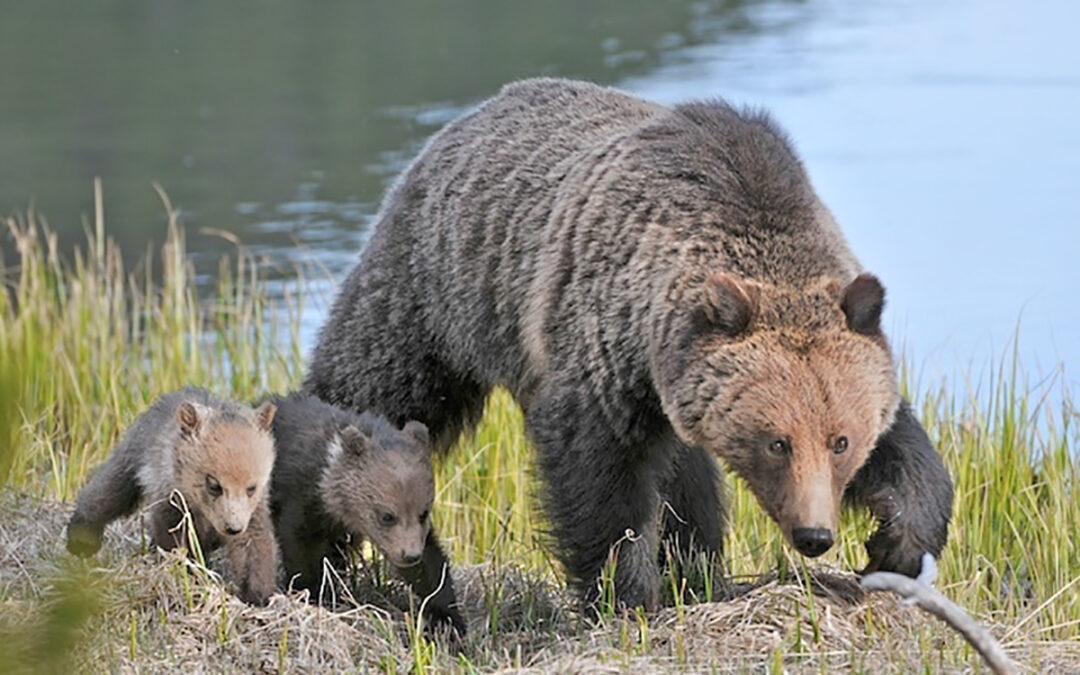Photo: Glen Phillips
Thanks to a successful court challenge by the Alliance for the Wild Rockies, over 10,000 acres of grizzly bear habitat in northwestern Montana will not be decimated by commercial logging. In late June, our lawsuit in a federal district court in Montana halted a large-scale logging project in endangered grizzly bear habitat to protect the small, isolated, and imperiled Cabinet-Yaak grizzly bear population from further harm.
The Ripley logging project authorized almost 17 square miles of commercial logging (10,854 acres) on publicly-owned National Forest lands, including roughly five square miles of clearcuts (3,223 acres). By the U.S. Forest Service’s own estimate, the project would cost federal taxpayers $643,000 to implement since receipts from the commercial timber sales do not cover the cost of the post-logging ecological remediation.
The Court ruled the project is illegal because the government did not analyze the cumulative impacts on grizzly bears from concurrent logging and road-building on public lands, state lands, and private lands in the area. The project authorized construction of 30 miles of new logging roads and reconstruction of 93 miles of logging roads and it is well-documented that roads pose the greatest threat to grizzly bears, followed by logging and habitat removal.
The court victory is especially significant because the Cabinet-Yaak grizzly population is in very bad shape. The actual count of grizzlies published in 2021 for the 2020 monitoring year found 45 bears, down from 50 bears in 2019, and 54 bears in 2018. The government’s own Grizzly Bear Recovery Plan requires 100 bears for the minimum viable population.
The Cabinet-Yaak grizzly population is also failing every recovery target and goal: it is failing the target for females with cubs; the target for distribution of females with cubs; the female mortality limit and the mortality limit for all bears – (which is 0 mortalities until a minimum of 100 bears is reached).
A peer-reviewed scientific research paper, Kendall et al. (2016), analyzed the Cabinet-Yaak grizzly population in detail based on extensive and systematic DNA collection in the region and found: “In the small Cabinet and Yaak populations, the difference between growth and decline is 1 or 2 adult females being killed annually or not.” Last year three female Cabinet-Yaak grizzly bears died.
The study concluded “the small size, isolation, and inbreeding documented by this study demonstrate the need for comprehensive management designed to support [Cabinet-Yaak Ecosystem] population growth and increased connectivity and gene flow with other populations.”
The Court acknowledged that this population is “uniquely vulnerable,” and it found the government’s analysis “factually false” because the government “assumed, contrary to the evidence before them, that the non-federal lands do not provide habitat for grizzly bears. They then used that false assumption to conclude that because the Project would not substantially reduce secure habitat on USFS land, the Project would not jeopardize the grizzly bear.”
The Court ruled the Forest Service violated the Endangered Species Act by failing to “adequately consider the cumulative effects” of how private and state roads in the area affected the bears’ ability to move to secure habitat, and chastised the agency’s obfuscation of the facts, writing: “The Court and the public should not have to embark on a scavenger hunt through a nearly thirty-thousand page administrative record to find information that the BiOp [Biological Opinion} itself was supposed to disclose.”
This win is a great victory for the Cabinet-Yaak grizzlies – and we will continue our fight to ensure this dwindling population of grizzly bears will not be extirpated by the Forest Service’s reckless corporate welfare giveaways of our public National Forests to private logging companies. But the Forest Service has not given up and will try again to clearcut and bulldoze this important grizzly bear habitat.
Please consider donating anything you can spare to help us protect grizzly bear habitat.
Mike Garrity is the Executive Director of the Alliance for the Wild Rockies
